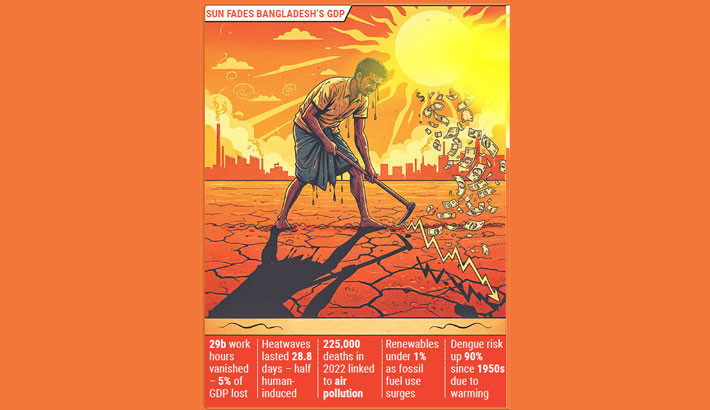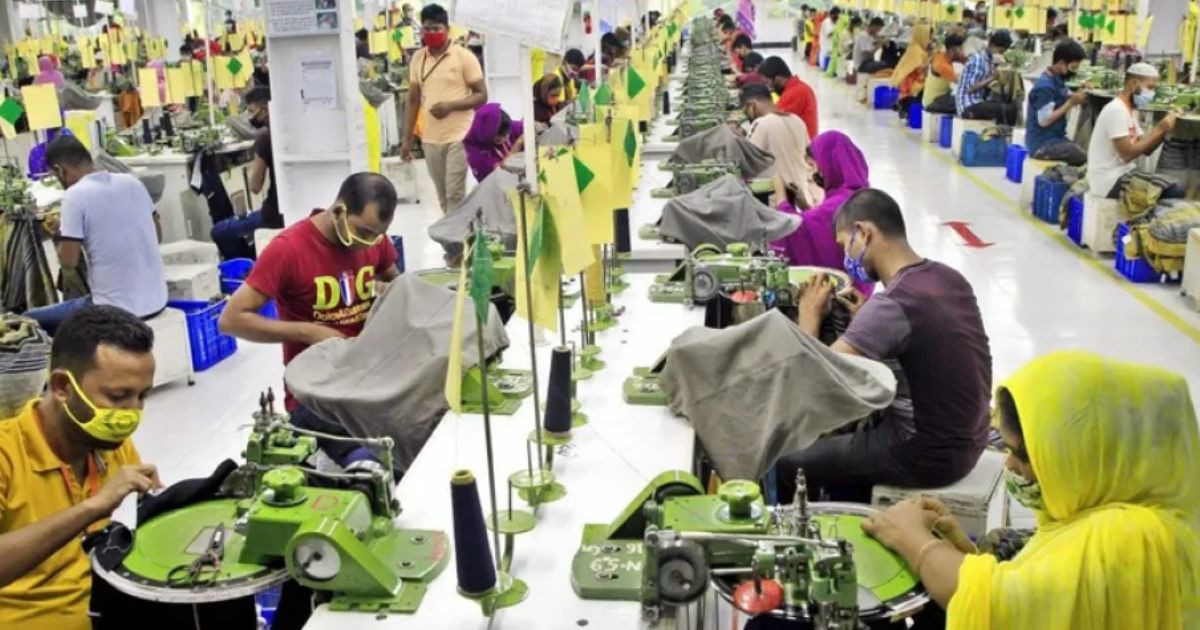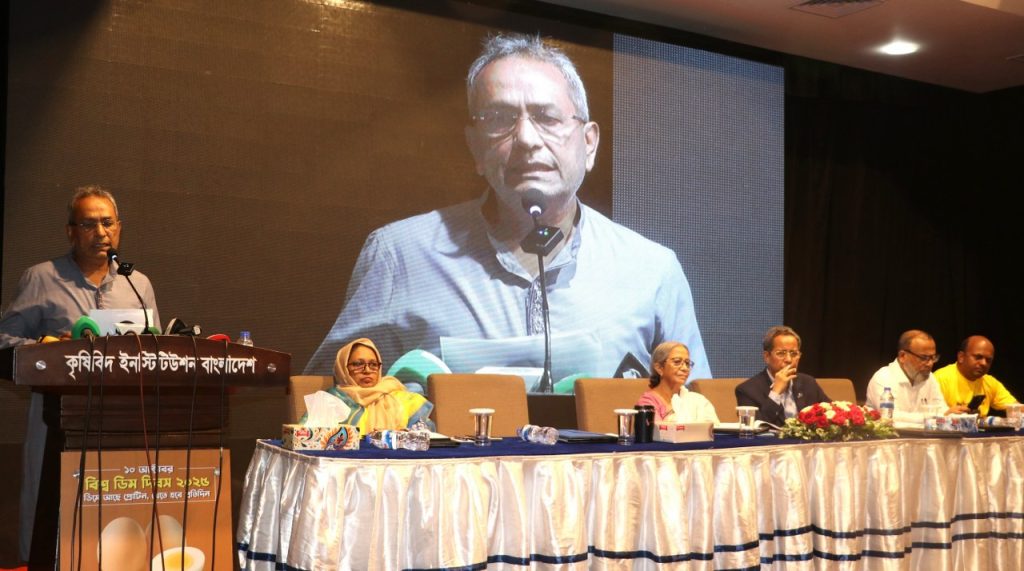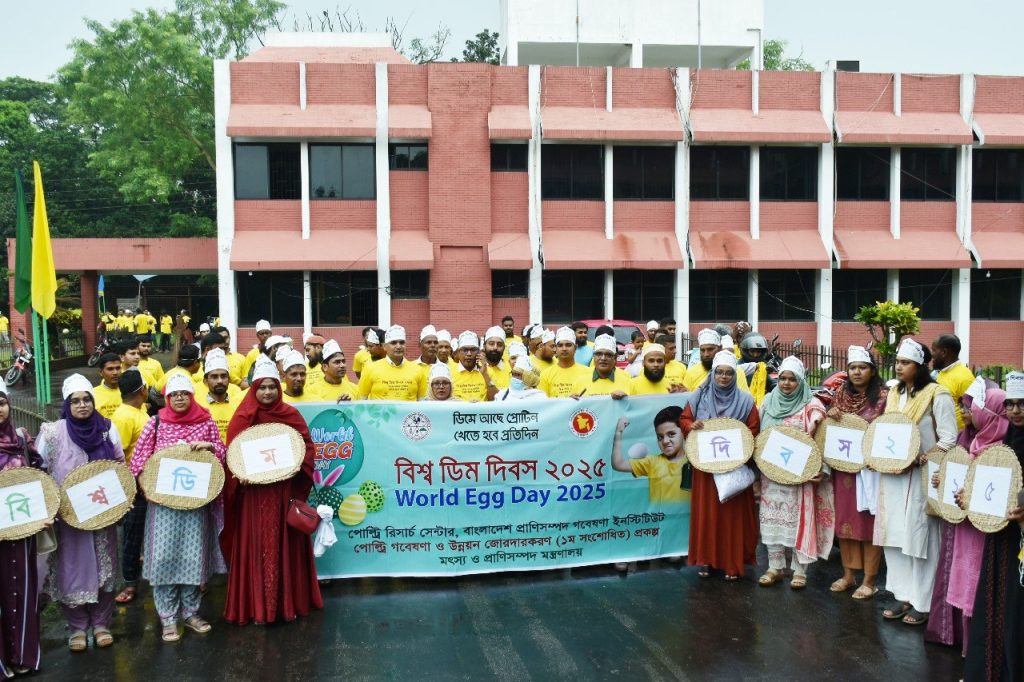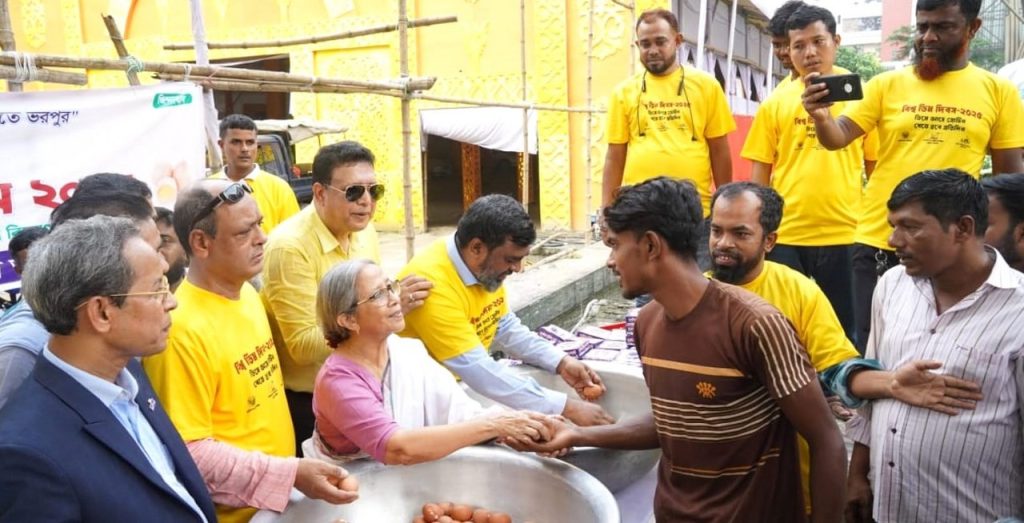World Food Day 2025 better food and sustainable agriculture for a healthy future

- Update Time : Monday, October 20, 2025
- 232 Time View
Dr. A K M Humayun Kabir: Today, October 16, we are celebrating World Food Day 2025. Food is not merely a means to fill our stomachs; it is an invaluable investment in our long-term well-being. This year’s theme, “Water is Life, Water is Food. Leave No One Behind” reminds us that ensuring food security, nutrition, and a sustainable food system worldwide requires united action. Increasing food production alone is not enough; the quality, nutrition, and long-term health benefits of food must also be ensured.
Global Food Situation
According to recent UN data, around 670 million people were undernourished in 2024. In Africa, one in five people suffer from hunger, affecting nearly 300 million people. In West Asia, about 40 million people lack adequate food. South and Southeast Asia still have around 320 million malnourished people. Latin America and the Caribbean show some improvement, but global food security remains a pressing challenge. Food shortages worsen child malnutrition, weaken women and labor-dependent communities, and increase healthcare costs. In this scenario, global cooperation, effective policies, and technology-driven solutions are essential. For Bangladesh, food security remains equally critical.
Food Security in Bangladesh: Challenges and Progress
Bangladesh’s food security relies on adequate crop production, livestock, fisheries, and fair distribution. In 2023, the country produced around 64.3 million metric tons of food grains, including 58.6 million tons of rice. The Boro season alone yielded 21 million tons, slightly below target. Yet, production alone is not sufficient—ensuring nutritional quality, especially for women and children, is just as vital.
The country has around 50 million livestock, the main sources of milk and meat. In FY 2023–24, milk production reached 12.5 million tons, while meat production was about 3.2 million tons. Proper management of feeding and breeding could meet a major share of national protein demand.
In 2024, fish production stood at 4.7 million tons, with 2.5 million tons from inland sources and 2.2 million tons from marine catch. Fish and vegetable exports also rose sharply, reaching 58,000 tons in FY 2024–25, nearly triple the previous year. Thus, for Bangladesh, food security means not only quantity but also balanced and nutritious diets.
Food as Health Protection: The Role of Functional Foods
Today, the definition of food has shifted. Beyond satiety, the focus is now on enhancing immunity and long-term health. This concept underscores the importance of functional foods.
-
Probiotics in yogurt support gut health.
-
Omega-3 in fish oil protects the heart.
-
Lycopene in tomatoes helps prevent cancer.
-
Calcium and Vitamin D in milk strengthen bones.
Functional foods can be categorized into:
-
Natural foods: yogurt, fish, vegetables, tomatoes.
-
Fortified foods: vitamin-enriched milk, calcium-added juices, omega-3 enriched oils.
With rising global health consciousness, the demand for functional foods is rapidly growing. In 2024, the market value stood at $246 billion, projected to more than double by 2033. Dairy products like milk, yogurt, cheese, and paneer are rich in whey protein, lactoferrin, calcium, Vitamin D, and probiotics. These boost immunity in children, aid athletes in muscle building and recovery, strengthen the elderly’s bones, and ensure overall well-being. Advances in nanotechnology and food processing are further expanding possibilities.
Climate Change: The Greatest Threat
Climate change is now the single greatest threat to food security. Irregular rainfall, cyclones, floods, droughts, and salinity disrupt crops, livestock, and dairy production. Bangladesh’s 50 million livestock are crucial for milk, meat, and manure. Yet, drought and heatwaves can reduce milk yields by 10–20% due to feed and water scarcity.
The IPCC Paris Report warns that by 2050, global food production could fall by 20% if current trends continue. Japan has already developed heat-tolerant rice varieties and adopted precision farming technologies. In livestock, improved breeds, better shading, and water management have stabilized milk output. Bangladesh, too, must focus on salinity- and heat-tolerant crops, sustainable livestock management, and climate-smart technologies. Engaging youth in agriculture is crucial to this adaptation.
Youth and Agriculture: The Key to Food Security
No agriculture, no food. No food, no life. For food security, youth participation in agriculture is indispensable.
In Bangladesh, there are nearly 45 million young people aged 15–29, of whom about 17–20% are engaged in farming or livestock. They are using digital marketing, smartphone apps, drones, and sensors to improve production and distribution. They are also investing in processing, exports, and farm management.
However, challenges remain: financial risk, unstable income, lack of training, difficulties in credit access, land reform issues, weak infrastructure, and social recognition gaps. Solutions include training programs, financial support, digital platforms, direct marketing, and stronger education-research integration. Youth participation not only ensures food security but also promotes eco-friendly and sustainable agriculture.
Eco-Friendly and Sustainable Farming
To cope with climate change, green agriculture is essential. Effective practices include:
-
Replacing chemical fertilizers and pesticides with compost and natural inputs.
-
Crop rotation, intercropping, and cover crops.
-
No-till farming, drip irrigation, and rainwater harvesting.
-
Agroforestry and pollinator-friendly farming.
-
Use of solar power and biogas.
-
Farmer training and integration of modern technology.
These methods strengthen both food security and environmental protection.
What We Can Do Now
Building a sustainable food future requires starting small:
-
Support local farmers and producers.
-
Reduce food waste.
-
Promote nutrition awareness among children and the elderly.
-
Encourage community-based food distribution.
-
Contribute donations where possible.
In conclusion, as the old saying reminds us: “Food is medicine, and medicine is food.” Today, improved nutrition and sustainable agriculture prove the wisdom of that proverb. By joining hands—local farmers, young entrepreneurs, and active communities—we can build a secure, nutritious, and healthy future.
• Dr. A K M Humayun Kabir, Professor & Researcher, Chattogram Veterinary and Animal Sciences University, Chattogram. akmhumayun@cvasu.ac.bd



